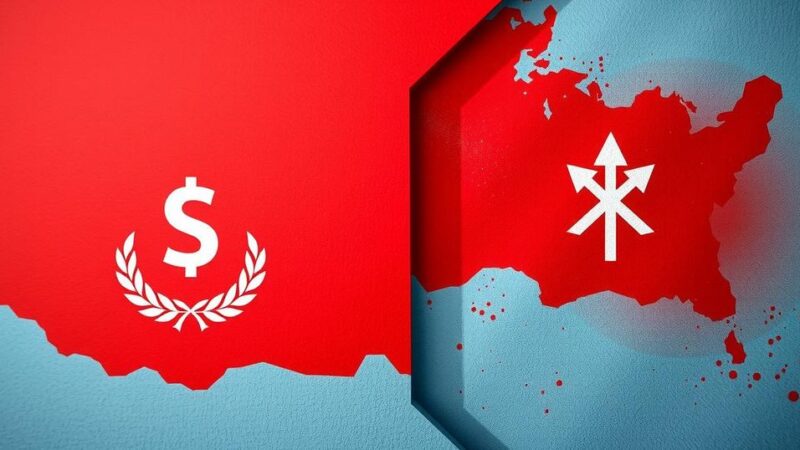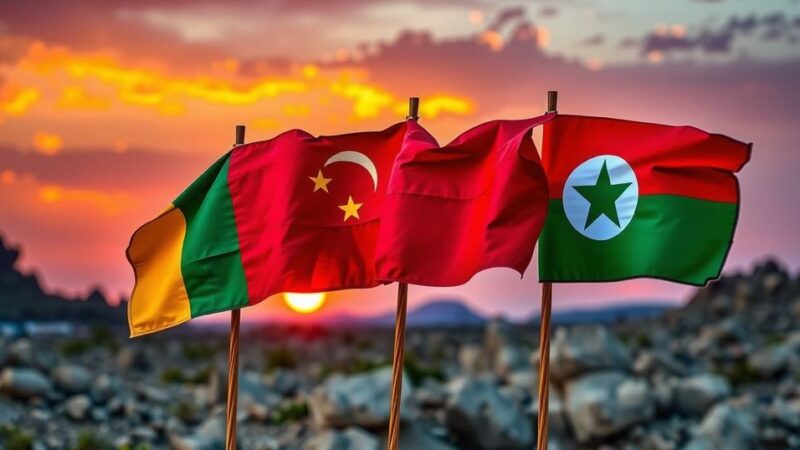The Democratic Republic of Congo has lodged a criminal complaint against Apple, alleging the use of illegal “blood minerals” from conflict-affected regions. The accusations include deceptive marketing and serious crimes such as war crimes and money laundering. Legal representatives emphasize the need for corporate accountability concerning the exploitation tied to resource extraction, as disturbing conditions persist in the DRC due to ongoing violence and instability.
The Democratic Republic of Congo (DRC) has initiated a criminal case against Apple, specifically its European subsidiaries, alleging the illicit use of conflict minerals, also referred to as “blood minerals”. The DRC accuses Apple of procuring contraband materials from unstable regions within the country and Rwanda, where these resources are allegedly sourced through unlawful means before being integrated into global supply chains and incorporated into technological devices.
Furthermore, Apple’s French and Belgian operations are accused of employing deceptive marketing practices to mislead consumers regarding the integrity of their supply chains. The complaints, reported by the French news agency AFP, have been lodged in Paris and Brussels and include serious allegations such as war crimes, money laundering, forgery, and acts of deception.
In a previous inquiry last April, the DRC’s legal representatives sought clarifications from Apple CEO Tim Cook and the company’s subsidiaries in France concerning the potential incorporation of illegally gathered minerals into their products; however, they reported receiving inadequate responses.
DRC attorney Robert Amsterdam characterized this legal action as a significant initial step in holding a major technology corporation accountable for its operations that allegedly perpetuate violence and suffering among Congolese civilians. He asserted, “Color Apple red, and not green. It is a trillion-dollar company that must be assumed to know the consequences of its actions. Enough with denials of accountability…!”
Paris-based lawyer William Bourdon emphasized that these criminal complaints represent a pivotal move toward ensuring that one of the most influential players in the tech industry is held liable for its alleged exploitative practices. He declared this process as essential, given the severe repercussions faced by African supply chains due to such corporate policies. Brussels lawyer Christophe Marchand echoed this sentiment, noting that the legal complaints are crucial during a time of heightened scrutiny by European stakeholders on global supply chains.
The gravity of the situation has been highlighted by the distress inflicted on local populations, who face violence, exploitation, and environmental degradation due to the mining activities linked to international corporations. The attorneys invoked findings from reputable organizations, including the United Nations and Global Witness, to support their claims regarding the human cost of mining in DRC.
In response to the allegations, Apple asserted it has no substantial reason to believe that its products include illegally exported minerals from conflict-affected regions and maintains rigorous verification processes for the materials it utilizes. Meanwhile, the Rwandan government has dismissed the allegations as unfounded, claiming that such accusations are part of a broader attempt by the DRC to deflect attention from its internal issues. The DRC continues to experience violent conflict, exacerbated by tensions with neighboring Rwanda which has been accused of backing rebel groups in the region.
Overall, this emerging legal controversy highlights the intricate ethical concerns surrounding the sourcing of minerals central to the technology sector and signals a growing demand for accountability within international supply chains.
The issue of conflict minerals, particularly in the Democratic Republic of Congo (DRC), is a significant ethical concern in the global supply chain of technology products. These minerals, often extracted under conditions of violence and exploitation, have been linked to human rights abuses, including child labor and funding armed groups. The DRC’s eastern provinces have faced prolonged conflict exacerbated by external influences, complicating the region’s socio-economic stability. Major tech companies, like Apple, have come under scrutiny for their sourcing practices as consumers and advocacy groups demand transparency regarding the origins of raw materials used in electronic devices. The calls for accountability have intensified in the context of increasing public awareness and regulatory frameworks aimed at mitigating the impact of such exploitative practices on vulnerable populations.
In summary, the DRC’s legal action against Apple represents a crucial step in addressing the ethical implications of sourcing conflict minerals within the technology sector. The accusations reflect broader concerns about corporate accountability and the impacts of mineral extraction in conflict-affected areas. As public scrutiny of global supply chains heightens, significant repercussions may ensue for corporations found complicit in the use of illicitly sourced materials. The case could potentially reshape the discourse on responsible sourcing practices among leading technology companies.
Original Source: www.rfi.fr






